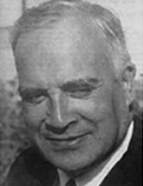

Torquato Soares was born on 7 March 1903 in Porto, where he completed a complementary course in Arts & Humanities at the Liceu Rodrigues de Freitas [Rodrigues de Freitas High School]. From his family roots in Vila Meã, in the Douro region of Amarante, he would always remember childhood holidays spent with his grandparents in the manor house, complete with its villa and chapel — a setting that would shape his particular way of viewing the history of Portugal (Mãe-Pátria [Motherland], 1958). The main features of his biography, published works, positions held, and honours received have already been outlined by the historians of the Academia Portuguesa da História [Portuguese Academy of History], as cited in their passive bibliography (2003). Certainly, consulting his archives and library, as well as reviewing the reports from his missions abroad and his five-year stay in Angola, will provide us with additional information. He graduated from the former School of Arts & Humanities of the University of Porto (1919-1928) in Historical and Geographical Sciences in 1924, with First-Class Honours [19 points in the Portuguese grading system], and went on to become an Assistant Professor there from 1927-1930. When that Faculty was abolished and he continued his research as a scholarship holder in Portugal and Spain (where he connected with Cláudio Sánchez Albornoz), he obtained his doctorate in Coimbra in 1935 with the thesis Subsídios para o estudo da organização municipal da cidade do Porto durante a Idade Média (new edition, facsimile, with preface by H. Baquero Moreno, 1989). Many years later, from his assessments for the academic title of agregado to further his university career resulted a book, Reflexões sobre a origem e a formação de Portugal [Reflections on the Origin and Formation of Portugal] published by the School of Arts and Humanities of Coimbra in 1962. In 1970 he published Contribuição para o estudo das origens do povo português [Contribution to the study of the origins of the Portuguese people] which was not really a continuation of the previous work, but a reworking of it, as he explained: "we felt that a more in-depth investigation was necessary". A full professor at the university, he remained there until his retirement, but took two breaks: between 1957-1959, because he was hired by the Faculty of Philosophy, Sciences and Humanities of the University of São Paulo (Brazil); between 1965-1970, because he was invited to Angola, where he took part in the implementation of General University Studies, serving as the rector's delegate at the Sá da Bandeira centre (now Lubango) between 1967-1970. When he returned to Coimbra that year, he resumed his teaching position and was also appointed director of the University Archives. He retired in 1973, but until his death he published around thirty other historical works. His final work, serving as his historiographical testament and reaffirming his main theses on the origins of Portugal, would be published posthumously under the title of Formação do Estado Português [Formation of the Portuguese State] (1989).
This work is financed by national funds through FCT - Foundation for Science and Technology, I.P, in the scope of the projects UIDB/04311/2020 and UIDP/04311/2020.
